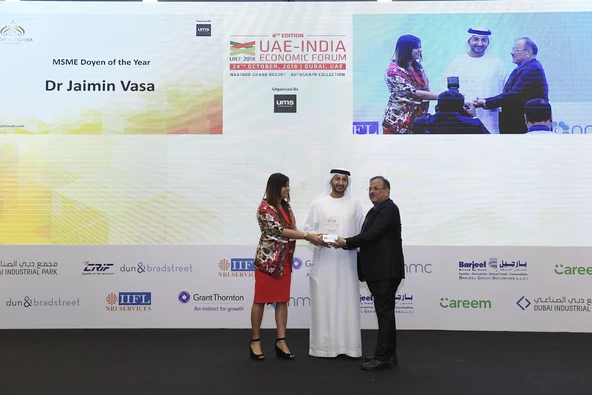July

PFIZER INVESTS HALF BILLION DOLLARS TO ADVANCE STATE-OF-THE-ART GENE THERAPY FACILITY IN SANFORD, NO
Pfizer announced today an additional half billion dollar investment for the construction of its state-of-the-art gene therapy manufacturing facility in Sanford, North Carolina. This facility is anticipated to support Pfizer’s continuing investment in gene therapy research and development, similar to Pfizer’s Chapel Hill and Kit Creek, North Carolina research and development sites. This facility would expand the company’s presence in North Carolina, where there are currently more than 3,600 Pfizer colleagues, including 650 in Sanford. The expanded facility is projected to add approximately 300 new jobs.
In addition to its gene therapy operations, colleagues at Pfizer’s Sanford facility also manufacture components for the company’s vaccine portfolio, including Prevnar 13 and several vaccines currently in Pfizer’s research pipeline. By expanding its manufacturing footprint in Sanford, Pfizer expects to strengthen its ability to produce and supply both clinical- and commercial-scale quantities of critical, potentially life-changing gene therapy medicines to patients living with rare diseases around the world. Specifically, the new facility would help advance Pfizer’s work in manufacturing highly specialized, potentially one-time gene therapies that use custom-made recombinant adeno-associated virus (rAAV) vectors.
“At Pfizer, our purpose is breakthroughs that change patients’ lives,” said Angela Hwang, Group President, Pfizer Biopharmaceuticals Group. “We’re excited to build this new state-of-the-art facility in Sanford because it will have the potential to help us develop novel methods to deliver transformative treatments to patients.”
“This investment will further strengthen Pfizer’s leadership in gene therapy manufacturing technology,” said Mike McDermott, President, Pfizer Global Supply. “The expansion of the Sanford site is expected to create hundreds of highly skilled jobs, which would increase Sanford’s high-tech manufacturing environment and is part of our overall plan to invest approximately $5 billion in U.S.-based capital projects over the next several years.”
“North Carolina is a leader in life sciences in part because of our long-standing partnership with Pfizer. Today we mark another boost to our state and we are proud of the people conducting life-saving research in Sanford,” North Carolina Governor Roy Cooper said.
Pfizer is expanding its end-to-end capabilities in gene therapy in North Carolina by investing in facilities focused on all stages of research, development, and manufacturing. In the Kit Creek facility, scientists work at a small scale – from 2L flasks up to 250L bioreactors – to develop the process that may eventually be used in larger scale manufacturing. That process is optimized at the Chapel Hill facility, where Pfizer colleagues continue to work at a 250L scale while implementing quality control measures included in GMP, or Good Manufacturing Practice, standards. Pfizer’s focus on these processes, combined with its existing and new additional investment in Sanford to manufacture gene therapies, is designed to result in a high-quality, efficient supply of gene therapies at clinical- and commercial-scale.
Pfizer to merge generics unit with Mylan
Pfizer Inc has agreed to spin off its generic drugs business and combine it with Mylan, a move that leaves Pfizer with more profitable innovative drugs, including cancer drug Ibrance and pneumonia vaccine Prevnar.
The move, which brings blockbuster treatments Viagra, EpiPen and Lipitor under one umbrella, is part of a years-long effort by Pfizer to split into three parts – innovative medicines, lower margin generic drugs business and consumer healthcare. Pfizer and GlaxoSmithKline Plc said in December they would combine their consumer health businesses. Under new Chief Executive Officer Albert Bourla, Pfizer has also been beefing up its cancer treatment pipeline as some of its older treatments face competition.
The new company, to be based in the United States and incorporated in Delaware, will be led by Michael Goettler, president of Pfizer’s generics unit, Upjohn. Mylan said CEO Heather Bresch, who took the helm in 2012 and faced regulatory scrutiny for the high price of EpiPen, will retire after the deal closes and Chairman Robert Coury will become the executive chairman of the new company.
[Courtesy: https://www.livemint.com/companies/news/pfizer-to-merge-generics-unit-with-mylan-seeks-to-sharpen-cancer-focus-1564410831789.html
THE PFIZER FOUNDATION INVESTS IN 20 ORGANIZATIONS TACKLING INFECTIOUS DISEASES AND ANTIMICROBIAL RESISTANCE
The Pfizer Foundation announced today 20 grants* to help non-governmental organizations (NGOs), non-profits and social enterprises address critical health challenges related to infectious diseases, including the increasing threat of antimicrobial resistance (AMR), in some of the world’s most vulnerable communities. Recipients of the one-year Global Health Innovation Grants (GHIG) include partners in 12 low- and middle-income countries, that will each receive US $100,000, for a total investment this year of US $2 million by The Pfizer Foundation.
Globally, infectious diseases are responsible for an estimated 8.4 million deaths annually and are a leading cause of death worldwide, particularly among young children and marginalized populations in underserved communities,1 often perpetuating the cycle of poverty. It is estimated that the rise of AMR, which occurs when pathogens evolve to withstand the effect of even the most effective medicines, now accounts for approximately 700,000 of these deaths.2 Without action, this number could reach ten million deaths per year by 2050,2 and could cost the world an estimated US $100 trillion in lost productivity in the same amount of time.3 The World Health Organization (WHO) included AMR in its list of ten threats to global health in 2019.4
“Mounting infectious disease outbreaks and the threat of large-scale antimicrobial resistance are increasingly becoming some of the most challenging global health needs of our time,” said Caroline Roan, President of The Pfizer Foundation. “We are dedicated to working with individuals and organizations in local communities as they rethink and scale innovative solutions to fight infectious diseases from the ground up, providing effective solutions to those patients most in need.”
The Pfizer Foundation’s flagship GHIG program is managed in partnership with Innovations in Healthcare (IiH), a nonprofit organization hosted by Duke University. The GHIG program combines grant investments with technical support to help accelerate global health innovations by giving partners the autonomy to navigate the unique and fluid challenges they face in their local – and often last mile – communities. The Pfizer Foundation and IiH work together to analyze results from each partner program in order to build on key learnings and pivot approaches, when needed.
Launched in 2016, the GHIG program has had incredible impact to date: 370,000 new patients have received care, 160,000 have been reached with screening and education, and 2,000 health workers have been trained. With the inclusion of this cohort of grants, total funding to date by the GHIG program totals $7.5 million. The 20 organizations included in this year’s cohort of grants each take a community-tailored approach to finding and scaling sustainable solutions to overcome infectious diseases. There is a strong focus across the grants on strengthening local healthcare systems and building capacity, including through primary healthcare delivery and the integration of innovative health technologies in low-resource settings. Examples include:
- The expansion of a clinical staff training program by Muso in Mali to support clinicians at government-run health centers to improve quality of care as it relates to infectious disease, maternal and child health and core clinical issues driving preventable deaths such as childhood pneumonia, malaria and maternal hemorrhage;
- The launch of UE LifeSciences’ new innovation cervAIcal, an artificial intelligence-enabled, hand-held, wireless mobile colposcope to aid health workers and healthcare providers in detecting precancerous lesions at the point of care in regions of India with limited infrastructure; and
- Group for Technical Assistance in Nepal will develop, implement and evaluate Global Learning in Anti-Microbial Resistance, an e-learning platform and web-based information repository containing curriculum to set up AMR programs in health facilities across the country, including opportunities for live communication and mentoring via webinars with health providers.
This new GHIG cohort demonstrates Pfizer’s continued commitment to infectious disease and supports Pfizer’s ongoing efforts to reduce health disparities.
*The Pfizer Foundation is proud to support the following partners in this cohort of grants:
2020 MicroClinic (Kenya); Afya Research Africa (ARA) (Kenya); Care 2 Communities (Haiti); Fundación Vive Con Bienestar – Bive (Colombia); Group for Technical Assistance (Nepal); Health Builders (Rwanda); Jacaranda Health (Kenya); Last Mile Health (Kenya); LifeNet International (Uganda); Muso (Mali); NAYA JEEVAN for Kids (Pakistan); North Star Alliance (Sub-Saharan Africa); One Family Health (Rwanda); Penda Health (Kenya); Possible Health (Nepal); Society for Nutrition, Education, and Health Action (SNEHA) (India); Swasth Foundation (India); THINKMD (Nigeria); UE LifeSciences (UELS) (India); Unjani Clinics NPC (South Africa).




Leave a Reply